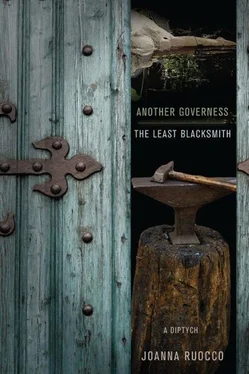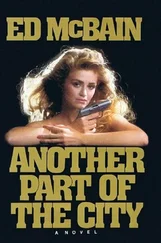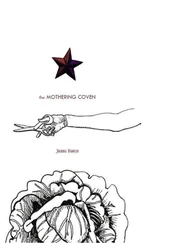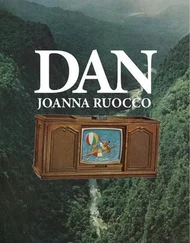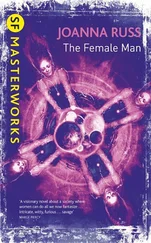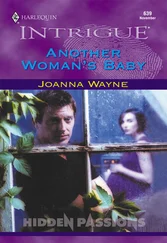The nursery door is open. It is a wooden door, a small wooden door; a child could push open the door. Where are the children? It is a dark time of day. Not night. No, it is a dark time of year. It is a dark season. The walls are very gray. The carpet is wet. The chairs are empty. Where are the children? The nursery is small. The nursery is meant for children, small children. There must be children somewhere in the nursery. Children laugh and play in the nursery. They play tricks. They tip the rocking horse. They tip the two chairs. They whistle to the dogs that go up and down the staircase. They kiss the dogs. They hit the dogs. They climb into the desks. They climb into the crib. They make holes in the carpet. They crawl into the holes. They wiggle. They laugh. They are rosy and dear. Little dears, that is what she called them. She counted to three. She put her hands on her eyes. She stood by the crib. She covered her eyes with a rag. She counted to ten. Charles has 10 apples. He gives his sister 7. How many has he left? He spends 6 cents for apples. 9 cents for cakes. A cake is worth 3 apples. How hungry is Charles? Twice he drinks 2 quarts of milk. 2 children start from the same place. They travel in the same direction. How many halves in 3 apples? On the wagon: 1 sack of apples. On the wagon: 1 sack of sugar. 1 pail of milk. 2 barrels of pork. Charles wishes to divide his books into piles. 3 piles. 10 books. How many books in each pile? How many dogs in each sack? A drover gave 7 sheep to the farmer. He got a cow and a calf. A book for 10 cents and a top for 7. Charles ate 5 apples as often as his sister ate cakes. Ann ate cakes. How many cakes? The man had 5 sacks. He had twice as many daughters as sacks. Not sacks. The remainder between apples and cakes. What is the remainder? The unit is cakes. How many cakes? His daughters are how many cakes? Where are the sacks? A tree has 10 branches. 2 apples hang from a branch. 1 apple kicks. 1 apple has spots. It swings. It dangles. She counted to ten. She counted ten apples. Ten little pigs eat ten little apples. The pigs are still hungry. Ten brown soft apples. Ten white hard pigs. Pigs are not little. They are hungry. They dig ten little holes. She felt with her hands on the carpet. Hairs stuck to her hands. Crumbs stuck to her hands. She felt the edge of the tray. She felt the belly of a dog, the thick hair, the stiff, cold belly of a dog. She felt the stiff leg of a dog. The little dears — where could they be? They'd left behind their crumbs. They'd left behind their dogs. The nursery door banged on its hinges. The windows were open. There was a draft in the nursery. It was a dark time of day. Through the rag, it was night. It was wet. She banged her hip on the crib. She banged her shin on the table. She felt the rails of the crib with her hands. Little dears. She felt the frame of the door. She felt the cold in the hall. She felt the first step with her toe. She felt the second step with her toe. She felt the second step with her heel. She felt the third with her heel. She felt the fifth with her knee. She felt the sixth with her wrist. She felt the seventh with her chin, the eighth with her chin, the ninth with her chin, the tenth with her wrist, her ankle, her hip, her neck, her nose, her palm, her shin, her spine, her rib, her chin, her chin, her chin, her chin.
The farmer had two daughters, each daughter like the other. They rode on dainty ponies, each pony like the other. Sometimes they walked. Arm in arm, they walked from the farmhouse to the fields. They sat on a low stone wall. They clapped hands. They walked into the forest. They found the hovel of the half-wit. He worked for the farmer. He dunged the fields for the farmer. He dunged the fruit trees for the farmer. He drove a cart of dung. The daughters did not see the cart and so they approached the hovel. The trees had dropped their acorns. The daughters approached the hovel over acorns. They felt the pressures of the acorns through the soles of their shoes. The hovel had a door, a plank for a door. It hung open on a broken hinge. The daughters went through the door. They felt smooth dirt — cold smooth dirt — through the soles of their shoes. They had expected the hovel to smell like dung, but the smell in the hovel was a different smell. The daughters breathed hard through their mouths. They looked straight ahead. They turned their faces to the side and vomited, each in her own corner of the room. Straight ahead of the daughters lay the half-wit. The daughters looked straight ahead. They had never seen a naked man and now they saw the half-wit. The half-wit's legs were thin and bent, but his chest was very wide and the stomach pushed up very high. He had white hairs growing on the tops of his shoulders and around his nipples. Something had bitten at the face of the half-wit, at the soft nose and lips of the half-wit, and at the groin of the half-wit. The daughters could see white through the torn cheek of the half-wit, the white of the half-wit's teeth. The dainty ponies of the daughters had things that came down from their bellies when they made their thick streams. Across the white thin leg of the half-wit, the half-wit's thing looked black. The biting had made his thing black with blood and swollen so that it cracked on the sides and the knob. Yellow-clear fluid leaked from the sides and the knob and wetted the half-wit's leg. Arm in arm, the daughters walked to the half-wit. They could not walk around the half-wit. The hovel was too small. The head of the half-wit touched the back wall of the hovel. One of the daughters touched the half-wit's thing with the toe of her shoe. She felt nothing through the toe of her shoe. The knob on the thing was as large as an apple. Touching the knob on the thing with the toe of her shoe, the daughter's face did not look different from the face of the daughter who did not touch, who stood with her shoes on the dirt.
The knob had a daughter. She was a fluid. No, she was a worm. She was not a worm. She was a thread. She was a hair. The dog had a hair. The pig had a hair. The milk had a hair. Look in the milk. There is a hair. It is thicker at the root. It is long and thin. It is sticky at the root. It smells. The dung had a daughter. She was a smell. She was a wet smell. She stuck to the foot. She stuck to the stairs. She said, listen, but she was a smell. Do you hear a smell? said the cook. Do you hear a smell? said the gardener. We cannot hear a smell. You cannot hear a smell. The housekeeper wiped the smell with a rag. The rag had a daughter. She squealed. There are eggs in the rags, said the cook. There are worms in the rags. There are flies in the rags. She put the meat in the rags. She put the rags in the sack. She put the sack in the hole. The hole had a daughter. She was a rock. No, she was a clod. She was a fat, wet clod. The farmer made his stream on the clod. The Master stirred the stream and the clod. He made mud with his stick.
The nursery is changed. The sounds have changed. It is not squealing. It is not banging. It is dripping. The nursery drips. The chimney drips. On the roof of a grand house, chimneys, a forest of chimneys, thin chimneys, black chimneys. The Master walks in the forest of chimneys. The forest is not safe. It is slick. It is steeply pitched. Dogs run after the Master, slide after the Master. Their nails scratch on the slates. The Master walks from gable to gable. He rests by a chimney. He leans. He puts his hands on the hairs where they thicken. He jerks against a chimney, the black slot at the top of the chimney. His white hairs have changed. They are black. Between his legs, black soot, the black heads of the dogs, the flapping ears of the dogs, the red tongues of the dogs. Above the nursery, the attic. Above the attic, slates, gray slates, black chimneys, the Master. On top he is white. Below, black. He jerks with his stick. He is above the nursery. He drips. I crawl to the mouth of the fireplace. The stone is cold. The ashes are wet. I put my hands in the ashes, my knees in the ashes. I put my head in the chimney. The air comes apart in my mouth. I gag. My eyes burn. I press my face to the stone of the chimney. Fluids run on the stone. I lay on a low stone wall. It was hot. There was a sound. I crawled on the stone. I tried to crawl on the stone to the shade. Hairs stuck to my hands. I crawled through the hairs. The shade was far away in the forest. All around: the field. The yellow field. The field made a sound. The sound itched. I couldn't hear it. It itched. My eyes burned. I let my head hang. My tongue came out of my mouth to wet the corners of my lips. I crawled. I touched a shape on the stone. The hairs thickened. They made a shape. I touched the shape. It was a cat. I saw the face of a cat, the open eyes of the cat. I looked through the eyes of the cat to the stone. I put my fingers beneath the cat and I lifted. It flipped. It was only the skin of the cat. Flipped, it was white. It was dry and white. I lifted the skin. It flew up the chimney like ash.
Читать дальше
